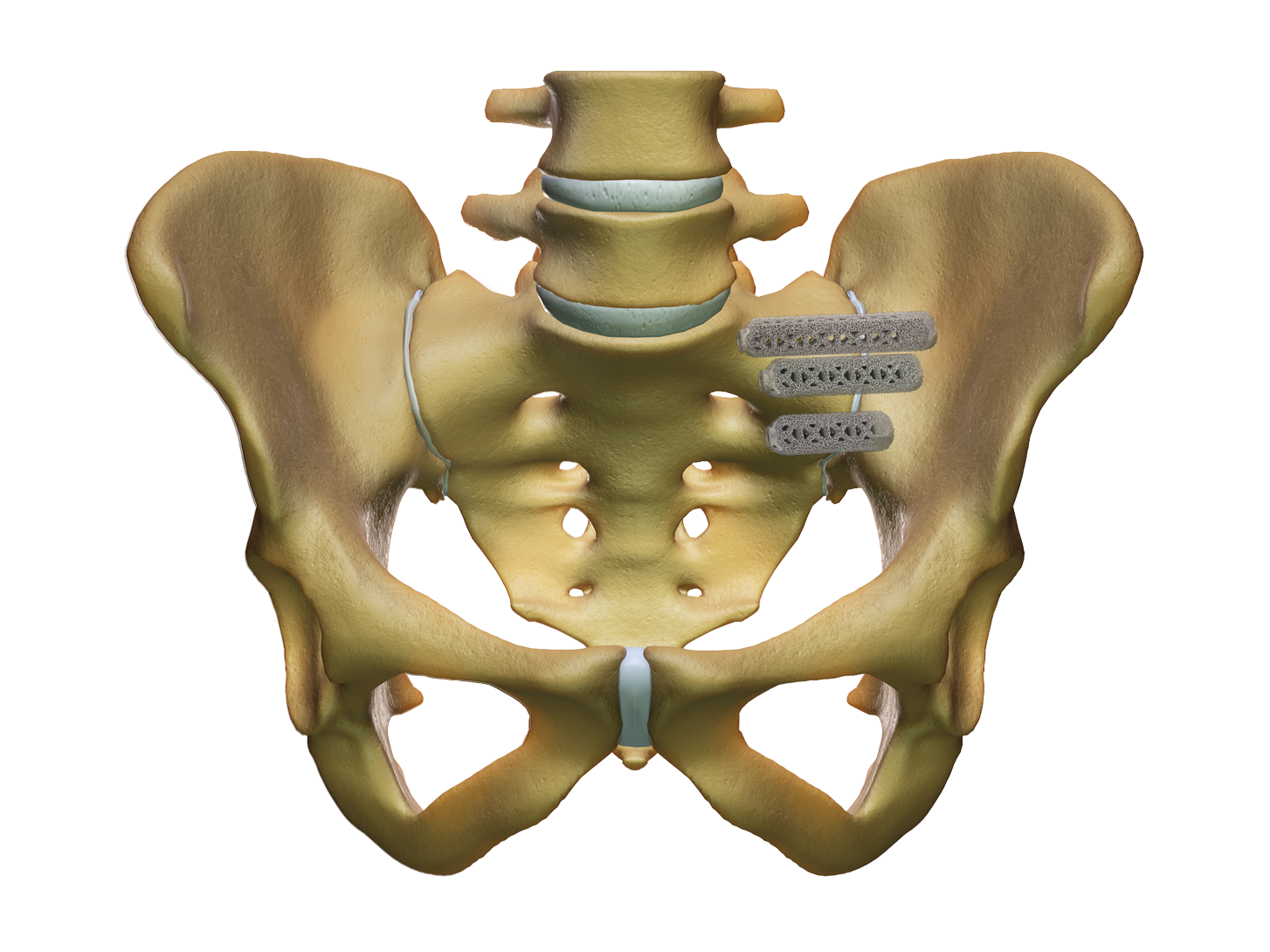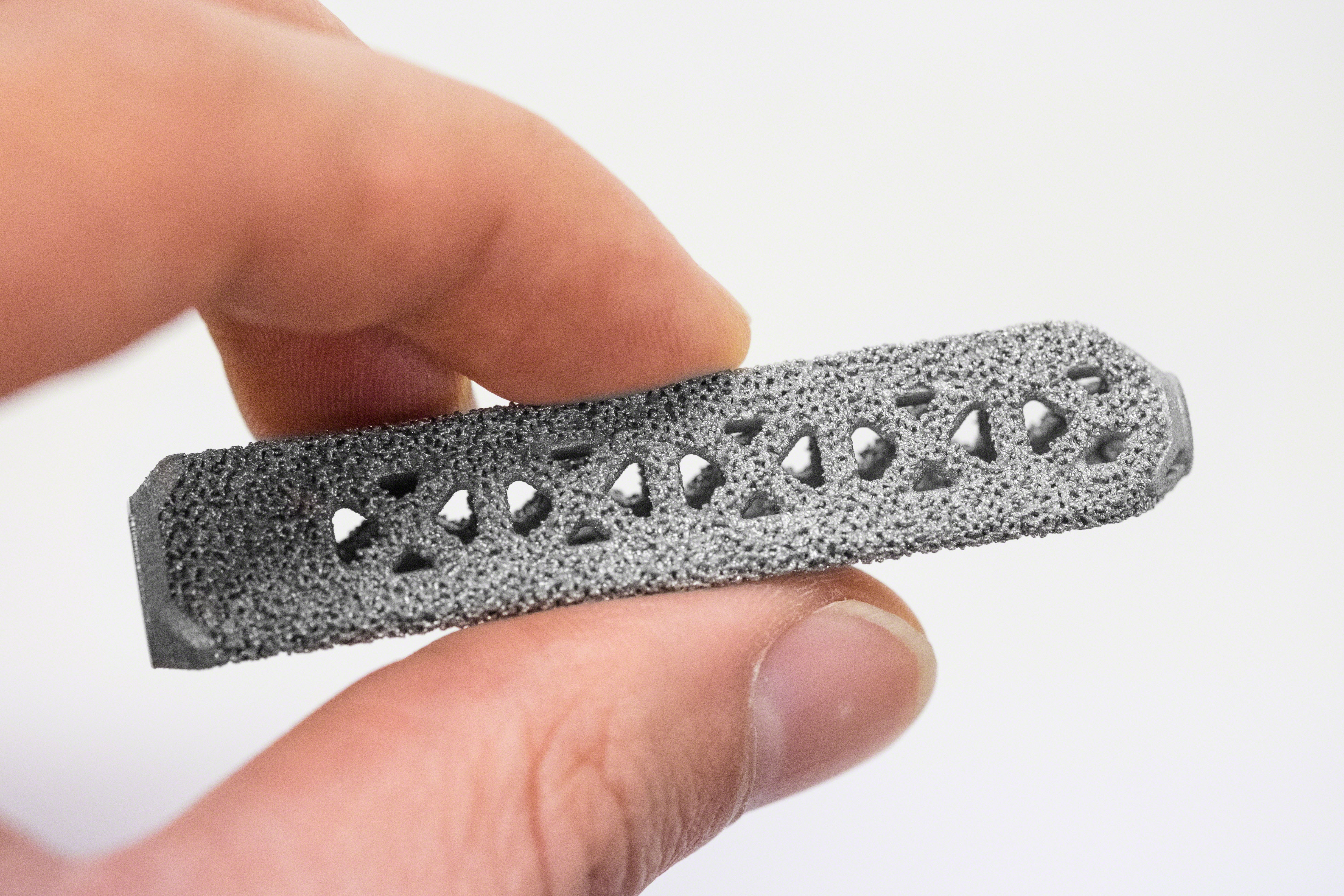The Shape of Relief®
iFuse Implant System®
Minimally invasive SI joint fusion surgery to relieve SI joint pain. The iFuse Implant System®, available since 2009, is a minimally invasive surgical (MIS) option designed to provide immediate sacroiliac (SI) joint stabilization and allow long-term fusion.
In a 5-year prospective trial, patients had rapid and sustained relief of SI joint pain. Also, 95% of the patients were very or somewhat satisfied with the results at 5 years. -- Whang - Med Devices (Auckl) 2019 [LOIS 5yr] 79

How the iFuse Implant System Works
The iFuse Implant System® is intended for sacroiliac joint fusion including use in high and low energy fractures of the pelvic ring.
The iFuse Implant System may not be appropriate for all patients and not all patients may benefit. Read more about the potential risks.
Minimally Invasive Sacroiliac Surgery: What to Expect
Sacroiliac (SI) joint fusion is a surgical procedure performed in an operating room, with either general or spinal anesthesia. The iFuse Implant System, a minimally invasive surgical (MIS) procedure, requires a small incision (about one to two inches long), along the side of the buttock.

Your surgeon will use a specially designed system to guide the instruments that prepare the bone and facilitate placement of the titanium implants across the sacroiliac joint. Fluoroscopy, an imaging technique commonly used by physicians, provides your surgeon real-time moving images of internal structures during the procedure. Typically, three iFuse Implants are used in an iFuse procedure.
Both the surgical technique and the iFuse Implant System are designed to protect the tissues surrounding the surgical site.
The whole MIS SI joint procedure takes about an hour, and recovery time is significantly less than open surgery.
Your surgeon will decide when you can return home based on your postsurgical status.

Benefits of iFuse
Minimally invasive SI joint surgery is the current medical standard of care for SI joint fusion to relieve sacroiliac joint pain.
- Titanium construction designed specifically to stabilize and fuse the SI joint
- Triangular shape minimizes rotation
- Porous titanium surface allows for bony ongrowth/ingrowth17
- Proven Effectiveness [see Clinical Results]
Some complications with MIS, as with all surgery, are anticipated. Read more about the potential risks.
Your doctor will advise you on resuming your daily living activities as your healing and symptoms allow. Depending on your occupation, you may be able to return to work at this time. You will need to have additional X-rays taken at 6 months and later at 1 year in order to assess your progress.
Please consult your doctor for more information regarding this procedure, your candidacy for an MIS procedure, and factors that may impact surgical results.

Diagnosis
Questions & Answers
These “Frequently Asked Questions” (FAQs) were created to answer some of the most common questions about the sacroiliac joint and the iFuse Implant System.
- Where is my sacroiliac (SI) joint?
- What is sacroiliac joint dysfunction?
- What are some causes for pain in the lower back, buttocks or pelvic region?


